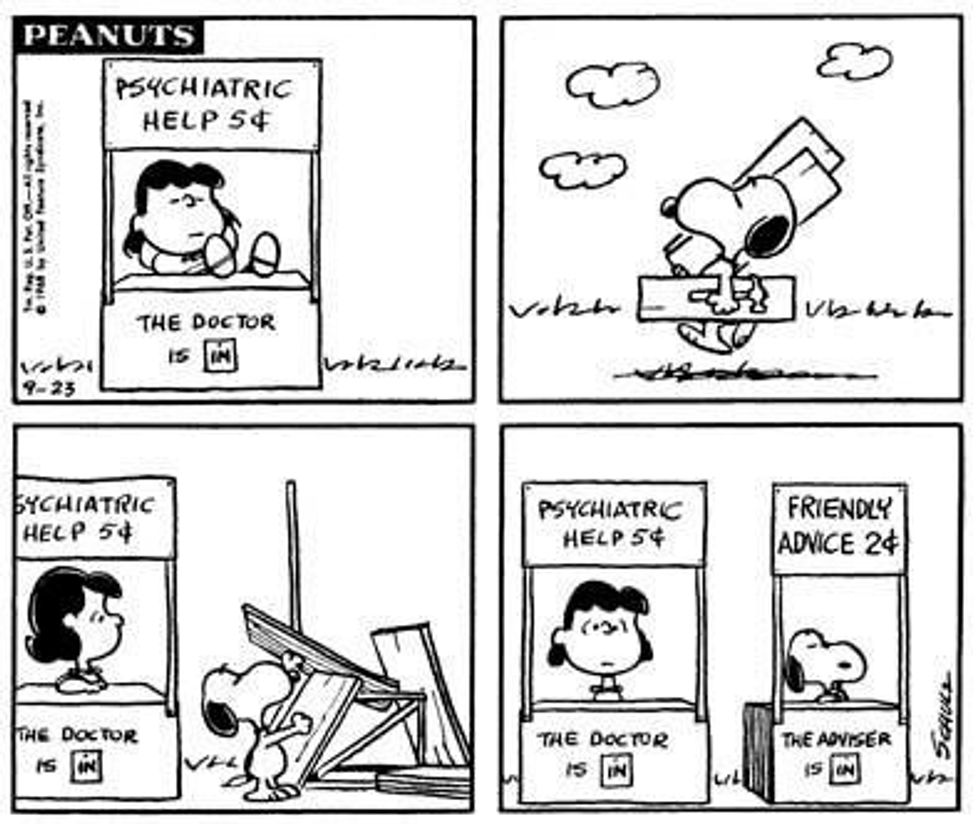For college students across the country, the fall semester has either started or will start in the next few weeks. As a senior at Marshall University, I adopt five strategies every semester that foster success in my academic and personal lives. Success in college and life in general, usually begins with the establishment of priorities and branches out from there. All of these tips are underpinned by prioritizing, so here we go.
5. Use a planner each day
This tip actually has more do with organization that buying a planner. Use a notebook, a sketchbook, cell phone calendar, or a planner to write down homework due dates, work schedules, or appointments. You're an adult now and it's your responsibility to take the initiative for your education, job, and/or healthcare. I highly recommend a planner, because it has kept me organized and reminded me of important events or assignments when I have a memory lapse. I know this may not be a good strategy for everyone, but find an organization system that works for you.
4. Establish a relationship with your professors

3. Be present in class
I hear this from professors at the beginning of each semester: Students who attend class regularly tend to do well or better in class compared to those who do not attend regularly. They should amend this statement as: Students who attend class and participate regularly tend to do well or better in class compared to those who do not attend regularly or participate. I understand that assigned readings or lectures can be difficult to comprehend, but that is when it is totally necessary and appropriate to ask questions for clarification. So many students sit in class and don't answer questions or participate in discussions because they feel self-conscious or anxious about even the thought of speaking out in class. If you have social anxiety and you see a therapist, you should seek accommodations for the class if that is possible, or if you can, talk to the professor one-on-one about your feelings. Most likely, if you pursue guidance and understanding for social anxiety, there are people and resources and place to help you. There are also different, important ways to participate: taking notes and reading along in your required text--these are active listening skills that are just as, if not more, important than overtly contributing to class discussion. Nobody likes someone who constantly dominates the discussion; it's distracting and you're taking away time for your classmates' contributions. I've had to work on this skill personally. Either participate by taking notes or becoming vocally involved in class, but don't just passively sit there. If you don't want to participate in your classes at all, ask yourself if you should be in that class or college at all? Critics of the university classroom complain about the homogeneous discussion and thought processes but for that to change we need everyone in class involved, because we need balanced perspectives.
2. Do your homework, study, and seek help if you have academic or personal problems.
This is one of those tips that should be condensed to one word: prioritize. Do your homework, don't procrastinate and say you'll get around to it after you go to that basketball game with your friends; don't wait until the morning the assignment is to due to start on the assignment, just complete your homework before participate in any additional activity. If you do this, then the assignment isn't looming over your head and you'll have enough time to complete the assignment to the best of your ability. I had friends in high school who didn't have to study for a single exam or homework assignment, but now it is necessary for them to study in order to pass college courses. Just know that at some point in your college career, you will have to study. The first step is to learn how to study effectively and the second step is to study. The most important strategy I use is to re-read and re-write your notes from class the previous class. Figure out what you know and what you don't, then go from there. See a tutor if you need help and discipline. Many college campuses offer tutoring services in a myriad of subjects: writing, mathematics, science, and English. Browse your University's website to find out about tutoring services.
Finally seek help for any academic or personal problems you may have during the semester. Talk to your professors if you fall behind in class or don't understand a concept. If you struggle with anxiety or depression or any other mental health difficulty, try to seek out counseling services on campus. Find someone who will actually offer constructive, helpful advice, don't choose a "Lucy-type" counselor who only cares about money, find someone who cares about YOU. Your mental and physical health should be your number one priority. No grade is worth compromised health. If you're too sick to focus or contribute in class, stay home and go to the doctor. It is vital for the health, safety, and effectiveness of the class that you take responsibility for your well-being. Everyone, and I mean everyone, is vital to the success of a class; therefore, we need everyone in prime condition.
1. Have FUN.
School is stressful, but don't forget, it should be a fun, worthwhile experience. Get out of your dorm and apartment and have fun with your family and friends. Establish a life outside of school, because this is just one part of life that will change at some point. Go to church, see your family, and find a hobby. Prioritize fun, for many students this is your first time away from your parents. Go on adventures and see your neighborhood and world. Life is only as exciting as you make it, don't be a passive observer. Live!

























